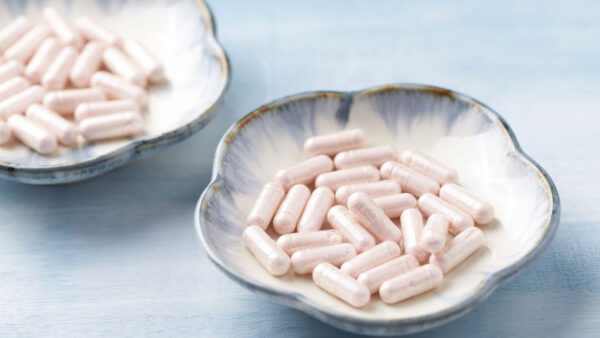During the recent General Conference virtual global camp meeting, there was an interesting discussion on vitamin B12. What is the role of vitamin B12, and why is it so important in our conversations regarding a vegetarian diet?
Vitamin B12 is an essential nutrient required to produce DNA in the body. It’s also vital in the production of red blood cells and the maintenance of nerve cell tissue, especially the myelin sheaths. Myelin ensures the normal conduction of electrical impulses along the nerve fibers. B12 also lowers the level of homocysteine, an amino acid that may be linked to dementia and heart disease.
Deficiency of B12 results in decreased production of red blood cells (anemia) and nerve tissue degeneration and dysfunction. In severe cases this can be fatal; hence the original description of this condition as pernicious (deadly) anemia.
B12, or cobalamin, is a water-soluble vitamin that has a complex structure similar to that of the heme molecule of hemoglobin, which carries oxygen in the red blood cells. The recommended daily allowance for men and nonpregnant women is 2.4 micrograms (μg) per day, and 2.6 μg per day for pregnant women. Cobalamin is produced by microorganisms (bacteria and other single-celled organisms), and humans are dependent on the diet for B12. The absorption of B12 is complex, beginning in the mouth and then finally absorbed in the ileum (end of the small intestine). It is then stored in the liver (an amount that may cover five to seven years’ needs). Tiny amounts of B12 may be produced by bacteria in the mouth, but this isn’t sufficient to provide for daily requirements.
B12 is important in our conversations regarding a vegetarian diet because B12 is not present in adequate quantities in plant foods.
Risk factors for B12 deficiency are:
- inadequate intake (total vegetarians or vegans)
- older lacto-ovo vegetarians
- previous stomach or bowel surgery (gastrectomy or ileal resection)
- autoimmune process, e.g., pernicious anemia
- alcohol use
- Crohn’s disease
- medications—prolonged use of metformin (diabetes), proton pump inhibitors, and histamine-2 receptor antagonists (lowering stomach acid)
In some parts of the world vitamin B12-fortified foods, milk equivalents, and B12 supplements are available. (It’s important to read the labels of the foods you use to ensure you’re getting an adequate supply of vitamin B12.) If these are not readily available, carefully use dairy products and eggs, and/or use a 500 μg supplement at least four times weekly. A B12 blood-level test can confirm whether you’re taking in adequate B12.
We’ve given a very brief overview in answer to your questions; please visit our website for a comprehensive, well-referenced review of this very important topic (https://www.healthministries.com/vitamin-b12-for-the-vegetarian/).
Robust scientific evidence confirms the advantages of being a vegetarian. As we responsibly practice healthful, balanced vegetarianism, we have well-founded reasons for what we do, and may enjoy life to the fullest!
“Always be prepared to give an answer to everyone who asks you to give the reason for the hope that you have. But do this with gentleness and respect” (1 Peter 3:15, NIV).



